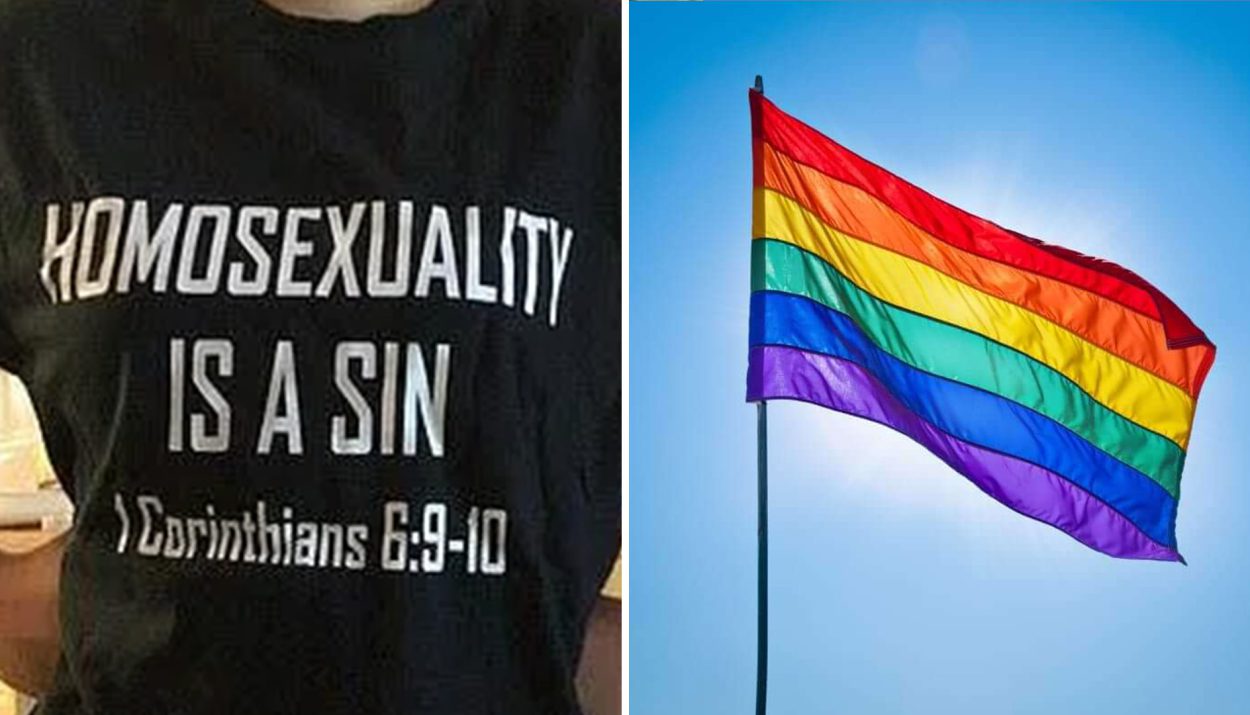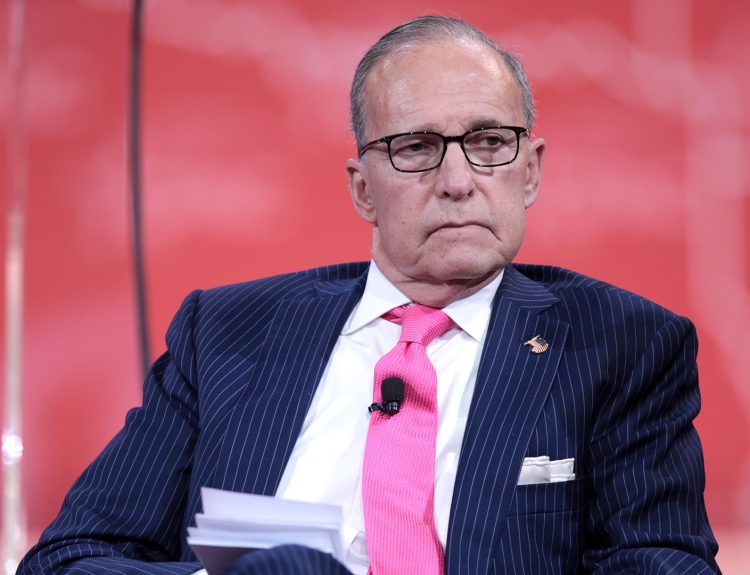The Christian right has had a history of unpopular opinions. Recently, their position on LGBTQ rights has made waves around the country. A Christian student penalized for her views about LGBTQ lifestyles has been vindicated through a settlement against the school in question. Let’s look at what came of these proceedings.
The T-Shirt That Sparked a Debate
Brielle Penkoski’s choice to wear a t-shirt proclaiming “Homosexuality is a Sin” to school caught the attention of school officials, who deemed the message offensive.
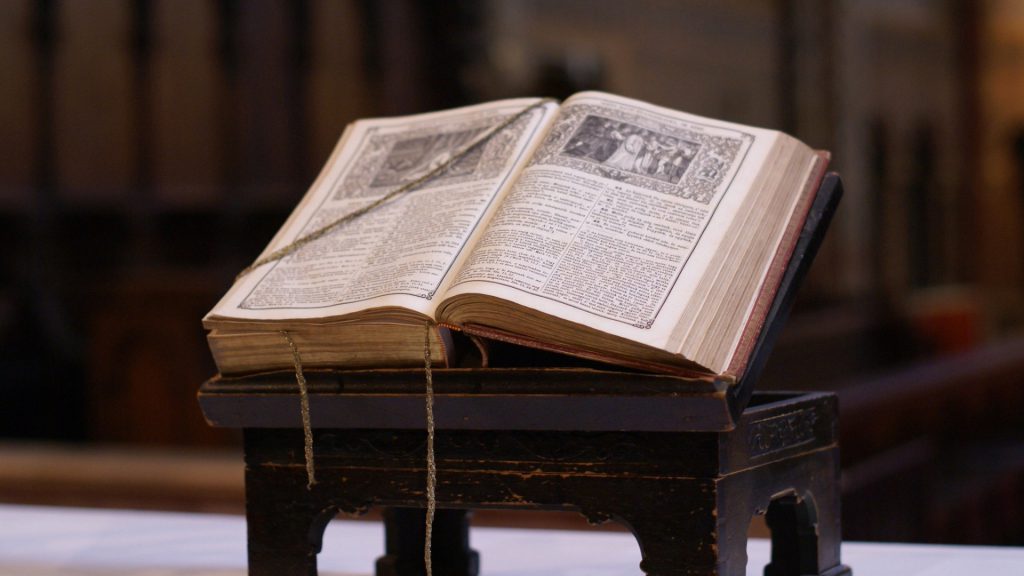
The shirt also featured a biblical reference to the verse and chapter where this stance is mentioned, underscoring Penkoski’s religious beliefs.
An Ultimatum: Change or Face Expulsion
When confronted by school authorities, Penkoski was given an ultimatum: either change out of the t-shirt or face removal from the school grounds.

This demand raised questions about the school’s authority to regulate student attire based on the content of the message. Religious messages are not permitted in American schools, and some administrators consider this to be one of those.
Legislation and Religious Promotion in Schools
Previous legislation has prohibited schools from promoting religion within their halls, which some argue may have influenced the school’s response to Penkoski’s t-shirt.
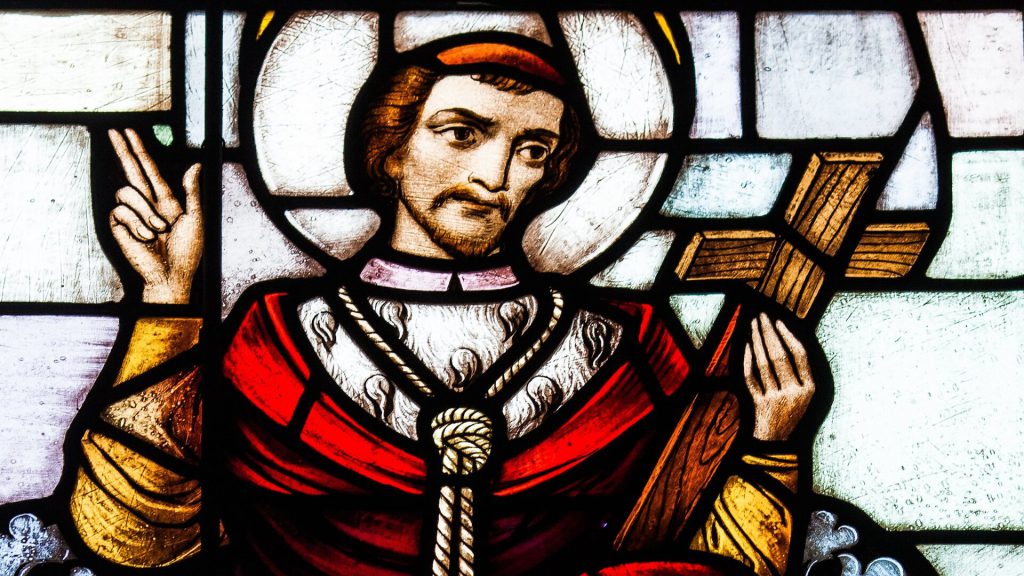
The incident highlights the delicate balance between individual expression and the need to maintain a neutral educational environment.
First Amendment Rights vs. Hate Speech
Supporters of Penkoski’s case hail the settlement as a victory for First Amendment rights and the “right to offend.” They argue that freedom of speech protects an individual’s ability to express their views, even if others find them disagreeable.
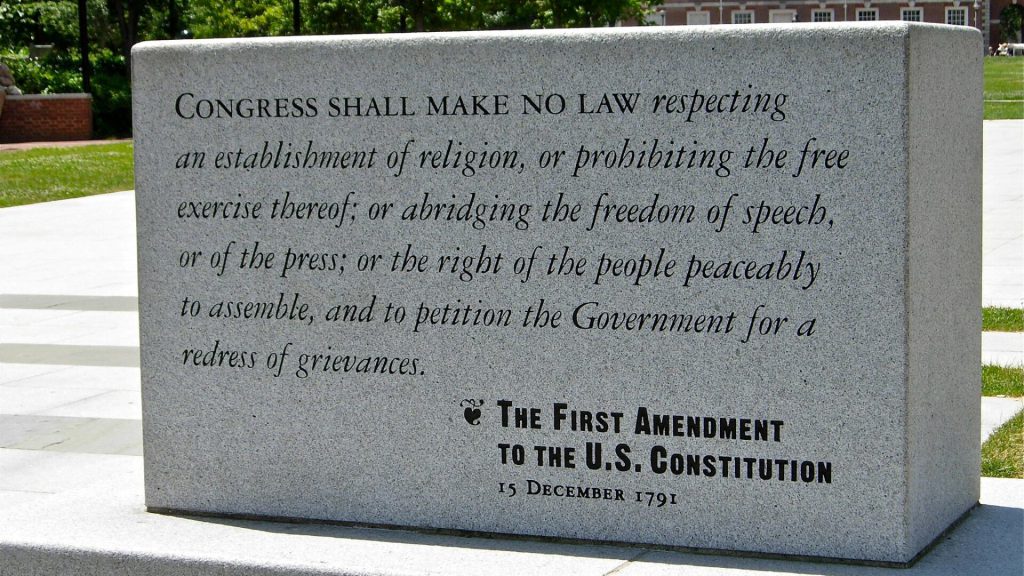
Conversely, critics view the outcome as a win for hate speech against the LGBTQ+ community, suggesting that conservative ideology still holds sway in Tennessee’s courts.
The Settlement Terms
In November, the Overton County Board of Education settled with Penkoski, agreeing to pay her a symbolic $100 and cover all attorney fees and litigation costs associated with the case.
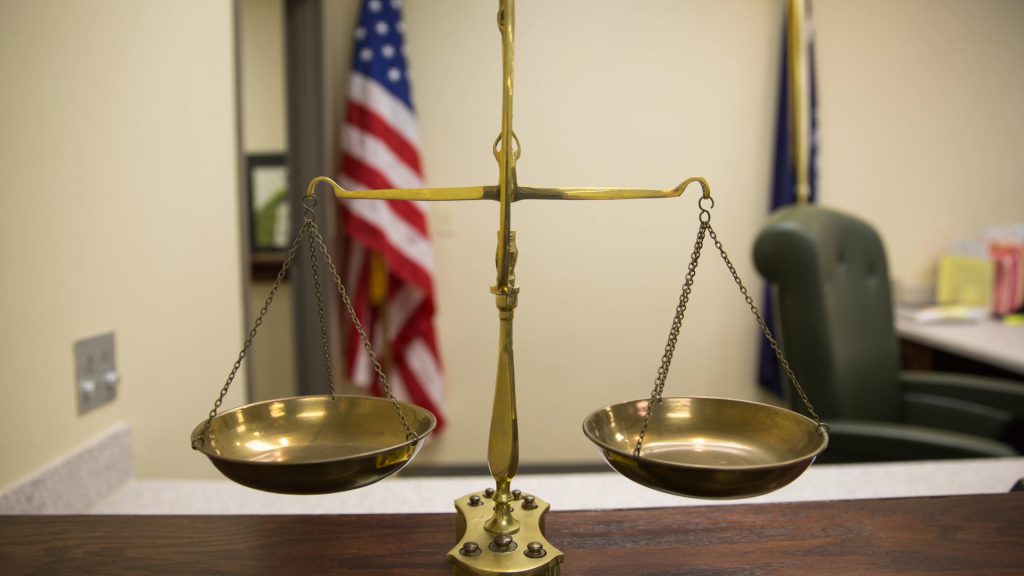
While the monetary compensation may seem modest, the settlement’s significance lies in acknowledging Penkoski’s right to express her beliefs. It was a moral victory in court.
A Father’s Validation and Push for First Amendment Training
Penkoski’s father, a street preacher, felt validated by his daughter’s victory against the school board. He further iterated that Penkoski’s position was her own, not influenced by his own beliefs.
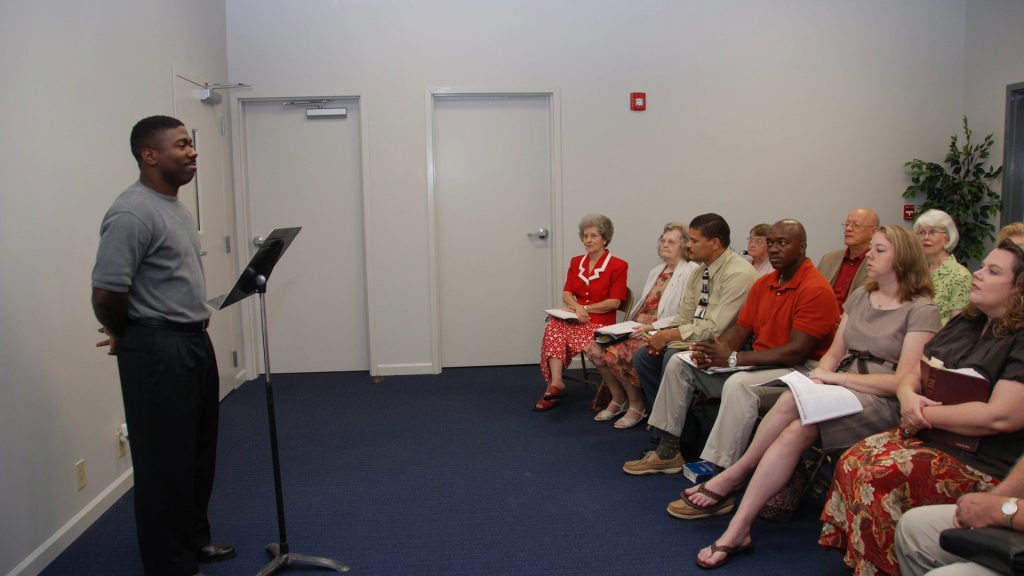
He emphasized the settlement’s importance in underscoring their position and advocated for teachers to receive First Amendment training to better understand the scope of free speech rights in educational settings.
The School Board’s Stance: No Admission of Guilt
As part of the settlement, the school board was not required to admit any wrongdoing. This works out well for the school since its name won’t end up on any official documents as being in the wrong.
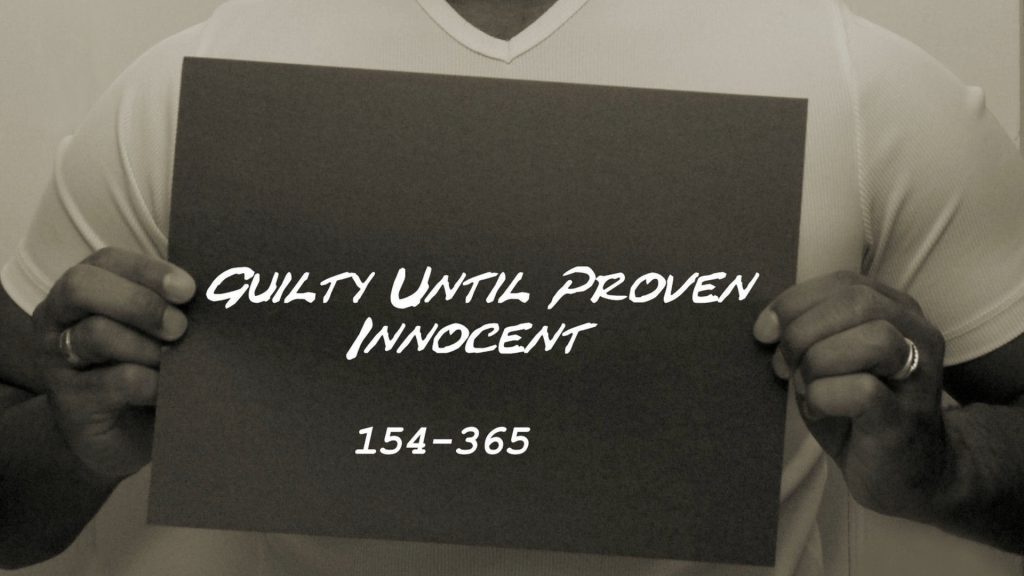
However, they agreed to schedule training sessions for teachers to enhance their understanding of First Amendment rights and how they apply within the school environment, which was in keeping with what the elder Penkoski wanted.
Sexual Connotations and Double Standards
School officials justified their request for Penkoski to refrain from wearing the t-shirt by citing its sexual reference, which they deemed inappropriate for the school compound.

Penkoski’s father countered this argument, pointing out the presence of a gay pride flag in a teacher’s classroom and arguing that it constituted an equally sexual statement.
The Right to Freedom of Speech
The United States Constitution guarantees freedom of speech to all individuals. However, the boundaries of what constitutes protected speech have been the subject of ongoing debate and interpretation.
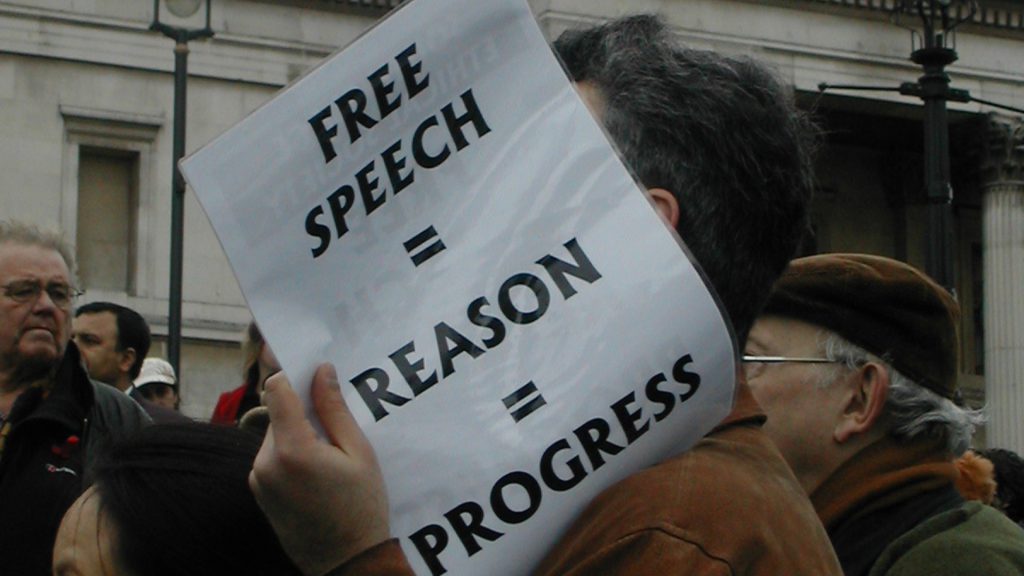
The case of Penkoski’s t-shirt raises questions about the line between hate speech and free speech and the circumstances under which speech can be restricted. It’s not a new discussion for the US legal system.
The Policing of Offensive Speech
In recent years, speech deemed offensive to particular groups has been scrutinized more closely. The concept of “cancel culture” has emerged, referring to boycotts and social consequences faced by individuals who express controversial opinions.
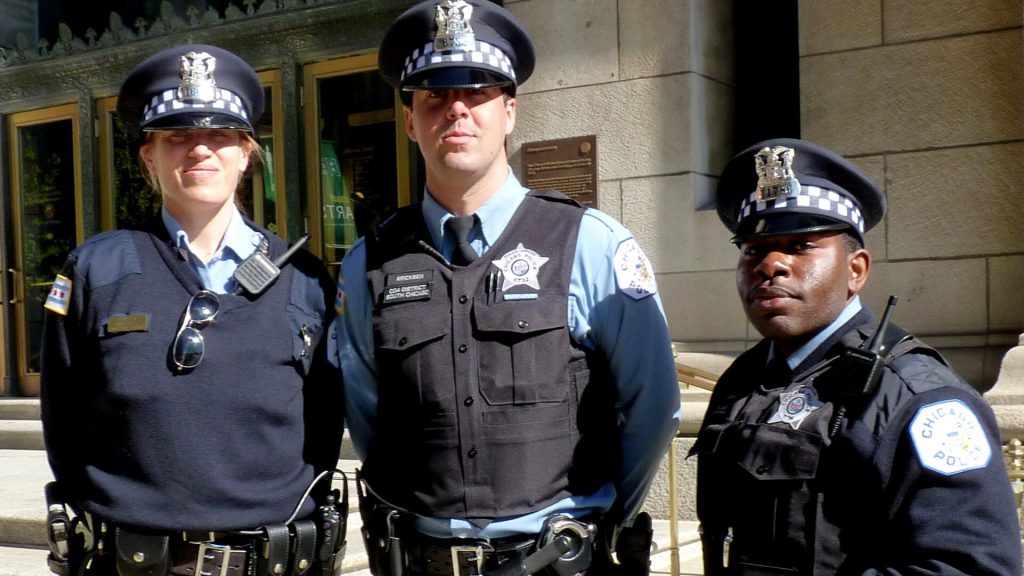
Social media platforms have also grappled with the challenge of moderating content while respecting free speech principles. Several have opted for AI bots to help them keep track of offensive speech.
The Unpalatable Nature of Free Speech
True freedom of speech entails protecting the right to express opinions that may be unpopular or even unpalatable to others. It’s enshrined in the American Constitution that people have a right to state their views.

While Penkoski’s stance on homosexuality may not align with prevailing social norms or LGBTQ+ rights, her right to express her beliefs is protected under the First Amendment, within certain limitations.
The Limits of Free Speech: Schneck vs. United States
The landmark case of Schneck vs. United States, decided shortly after World War I, established a framework for defining the limits of free speech. It is still referred to in cases involving free speech and censorship.

The ruling famously asserted that free speech would not protect an individual falsely yelling “fire” in a crowded theater. The courts evaluate whether the speech in question poses a “clear and present danger” that Congress has the authority to prevent.
The Historical Roots of Free Speech
The concept of free speech can be traced back to ancient Greek civilization, where open forums for debate were integral to democratic principles. Famously, philosophers would gather in the square to debate politics, religion, and science.

The inclusion of the First Amendment in the United States Constitution reflects the Founding Fathers’ commitment to fostering a society where ideas can be freely expressed and challenged.
Balancing Rights and Responsibilities
The case of Brielle Penkoski’s t-shirt controversy underscores the ongoing challenge of balancing individual rights with societal responsibilities. When does censoring the individual come before the rights of the collective? It’s a tricky question for anyone to answer.
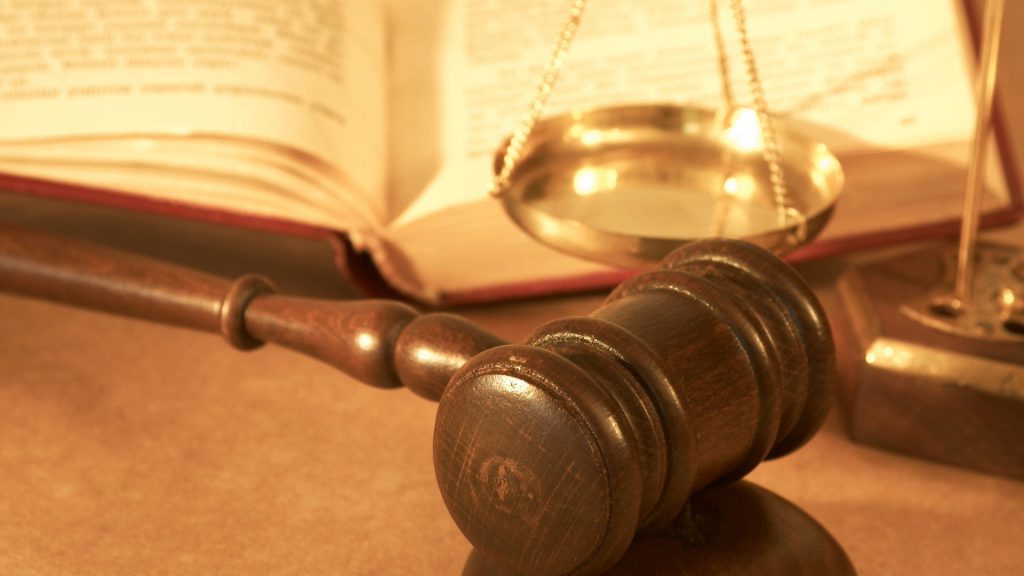
While the First Amendment protects the right to express opinions, even those that may be offensive to some, fostering an environment of mutual respect and understanding is crucial. Open dialogue, education, and empathy are essential in navigating the complexities of free speech in a diverse society.

